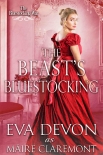Shirley, Charlotte Brontë [free children's ebooks online .txt] 📗

- Author: Charlotte Brontë
Book online «Shirley, Charlotte Brontë [free children's ebooks online .txt] 📗». Author Charlotte Brontë
Professedly Martin Yorke (it is a young Yorke, of course) tramples on the name of poetry. Talk sentiment to him, and you would be answered by sarcasm. Here he is, wandering alone, waiting duteously on Nature, while she unfolds a page of stern, of silent, and of solemn poetry beneath his attentive gaze.
Being seated, he takes from his satchel a book—not the Latin grammar, but a contraband volume of fairy tales. There will be light enough yet for an hour to serve his keen young vision. Besides, the moon waits on him; her beam, dim and vague as yet, fills the glade where he sits.
He reads. He is led into a solitary mountain region; all round him is rude and desolate, shapeless, and almost colourless. He hears bells tinkle on the wind. Forth-riding from the formless folds of the mist dawns on him the brightest vision—a green-robed lady, on a snow-white palfrey. He sees her dress, her gems, and her steed. She arrests him with some mysterious question. He is spellbound, and must follow her into fairyland.
A second legend bears him to the seashore. There tumbles in a strong tide, boiling at the base of dizzy cliffs. It rains and blows. A reef of rocks, black and rough, stretches far into the sea. All along, and among, and above these crags dash and flash, sweep and leap, swells, wreaths, drifts of snowy spray. Some lone wanderer is out on these rocks, treading with cautious step the wet, wild seaweed; glancing down into hollows where the brine lies fathoms deep and emerald clear, and seeing there wilder and stranger and huger vegetation than is found on land, with treasure of shells—some green, some purple, some pearly—clustered in the curls of the snaky plants. He hears a cry. Looking up and forward, he sees, at the bleak point of the reef, a tall, pale thing—shaped like man, but made of spray—transparent, tremulous, awful. It stands not alone. They are all human figures that wanton in the rocks—a crowd of foam-women—a band of white, evanescent Nereids.
Hush! Shut the book; hide it in the satchel. Martin hears a tread. He listens. No—yes. Once more the dead leaves, lightly crushed, rustle on the wood path. Martin watches; the trees part, and a woman issues forth.
She is a lady dressed in dark silk, a veil covering her face. Martin never met a lady in this wood before—nor any female, save, now and then, a village girl come to gather nuts. Tonight the apparition does not displease him. He observes, as she approaches, that she is neither old nor plain, but, on the contrary, very youthful; and, but that he now recognizes her for one whom he has often wilfully pronounced ugly, he would deem that he discovered traits of beauty behind the thin gauze of that veil.
She passes him and says nothing. He knew she would. All women are proud monkeys, and he knows no more conceited doll than that Caroline Helstone. The thought is hardly hatched in his mind when the lady retraces those two steps she had got beyond him, and raising her veil, reposes her glance on his face, while she softly asks, “Are you one of Mr. Yorke’s sons?”
No human evidence would ever have been able to persuade Martin Yorke that he blushed when thus addressed; yet blush he did, to the ears.
“I am,” he said bluntly, and encouraged himself to wonder, superciliously, what would come next.
“You are Martin, I think?” was the observation that followed.
It could not have been more felicitous. It was a simple sentence—very artlessly, a little timidly, pronounced; but it chimed in harmony to the youth’s nature. It stilled him like a note of music.
Martin had a keen sense of his personality; he felt it right and sensible that the girl should discriminate him from his brothers. Like his father, he hated ceremony. It was acceptable to hear a lady address him as “Martin,” and not Mr. Martin or Master Martin, which form would have lost her his good graces forever. Worse, if possible, than ceremony was the other extreme of slipshod familiarity. The slight tone of bashfulness, the scarcely perceptible hesitation, was considered perfectly in place.
“I am Martin,” he said.
“Are your father and mother well?” (it was lucky she did not say papa and mamma; that would have undone all); “and Rose and Jessie?”
“I suppose so.”
“My cousin Hortense is still at Briarmains?”
“Oh yes.”
Martin gave a comic half-smile and demi-groan. The half-smile was responded to by the lady, who could guess in what sort of odour Hortense was likely to be held by the young Yorkes.
“Does your mother like her?”
“They suit so well about the servants they can’t help liking each other.”
“It is cold tonight.”
“Why are you out so late?”
“I lost my way in this wood.”
Now, indeed, Martin allowed himself a refreshing laugh of scorn.
“Lost your way in the mighty forest of Briarmains! You deserve never more to find it.”
“I never was here before, and I believe I am trespassing now. You might inform against me if you chose, Martin, and have me fined. It is your father’s wood.”
“I should think I knew that. But since you are so simple as to lose your way, I will guide you out.”
“You need not. I have got into the track now. I shall be right. Martin” (a little quickly), “how is Mr. Moore?”
Martin had heard certain rumours;





Comments (0)